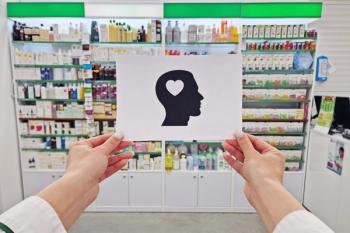
- Drug Topics December 2022
- Volume 166
- Issue 12
Study Sees Link Between Smartphone Screen Time, Symptoms of Mental Illness
Social support and education may be the solution.
Smartphones can provide easy access to social media and other online platforms, but subjective smartphone screen time may be associated with comorbid mental illness in young adults, according to an abstract presented at APHA.1 Providing social support may mitigate the effect and could be done through interventions monitoring screen usage and incorporating education about screen time into school curriculums.
A recent study examined the relationship between smartphone screen time and comorbid mental illness, as well as the role social support can play. Data were collected between March 2019 and May 2019 through a cross-sectional, web-based survey. Participants were over 18 years, spoke English, and were enrolled in a US college or university. They reported their daily subjective screen time, as well as their screen time for social networking, gaming, and productivity apps.
Symptoms of depression, anxiety, attention-deficit/hyperactivity disorder, and insomnia were measured. After adjustment for age, gender, race, ethnicity, and socioeconomic status, multinominal logistic regression models assessed the main effects.
Symptoms of 2 or more mental illnesses, but not any single mental illness, were significantly associated with daily subjective screen time, and findings were similar for networking, gaming, and productivity. Social support did significantly moderate these relationships.
“Rather than restricting screen time entirely, providing adequate social support from a young age may be effective at reducing the impact of screen time on mental health,” researchers concluded.
Reference
1. Jacob S, Noel J, Rosenthal S. Smartphone screen time and co-morbid mental illness in university students. Presented at: 2022 American Public Health Association Annual Meeting and Expo; November 6-9, 2022; Boston, MA.
Articles in this issue
about 3 years ago
2022 Top News from Drug Topicsabout 3 years ago
New Approaches in Psoriasis and Psoriatic Arthritis Treatmentabout 3 years ago
Treating Skin Cancers in the Immunotherapy Eraabout 3 years ago
What’s New in Acne and Rosacea?about 3 years ago
A Study of Immune Checkpoint Inhibitors and Complication Ratesabout 3 years ago
Evaluating Chronic Itch and Quality of Lifeabout 3 years ago
Biosimilar Uptake Increases After Changes to EHRabout 3 years ago
Mental Health Telemedicine Barriers Spur Call for Reformabout 3 years ago
How Drug Shortages Are Prevented by the FDANewsletter
Pharmacy practice is always changing. Stay ahead of the curve with the Drug Topics newsletter and get the latest drug information, industry trends, and patient care tips.























